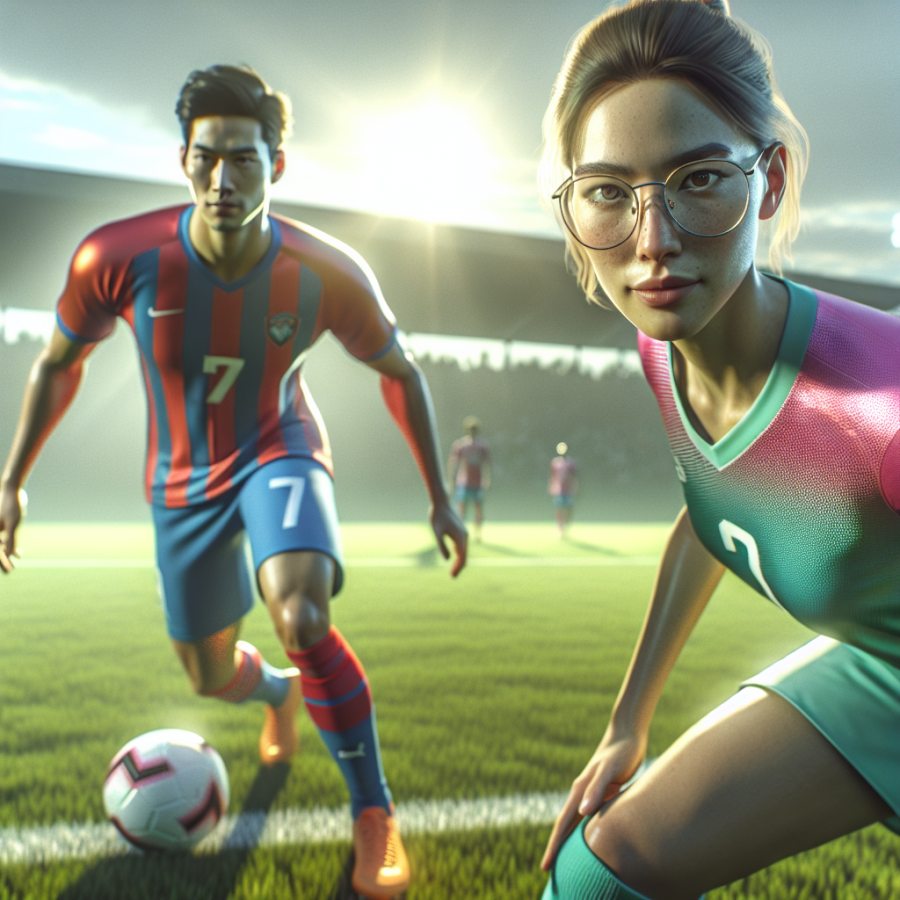Use of Protective Eyewear in Soccer: Safety First
Soccer is a sport that calls for physical agility and acute vision. It's essential for players to safeguard their eyes from possible hazards that may occur during a game. Here we delve into the use of protective eyewear in soccer and why it's crucial for player safety.
Protective eyewear in soccer includes sports glasses, goggles, or even specialized sports contact lenses. They are primarily designed to protect the eyes from possible injuries, such as blunt trauma from a flying soccer ball or a finger poking while trying to snatch the ball. Besides, debris, dust, or sunlight on an outdoor pitch can also cause significant discomfort and potentially interfere with a player's ability to see the ball, and hence, protective eyewear comes in handy.
Eyewear in soccer is not just for protection; it's also for enhancing vision. Some soccer players might have sight issues, such as astigmatism, hypermetropia, or myopia. It's fundamental to address these issues for performance improvement. With prescription sports glasses or contact lenses, these players can correct their vision and, at the same time, shield their eyes.
Sports glasses and goggles tailored for soccer typically come with an elastic band, which ensures that the eyewear remains secure even when players are running or jumping. It's also common for this type of eyewear to be made from polycarbonate because of its impact-resistant properties. These safety features add an extra layer of eye protection for soccer players, which allows them to focus wholly on the game.
Additionally, soccer regulations allow players to wear protective eyewear. The FIFA guidelines state that players can use sports glasses, provided they are not at risk of causing injury to the player wearing them or the other players. So players with eye problems no longer have to worry about being sidelined, thanks to these accommodating rules.
To sum up, with the potential risks associated with soccer and the need for perfect vision in the field, protective eyewear becomes an essential part of the game. They not only promise physical safety but also help players make the most of their skills by enabling clear sight.
In the end, it's always crucial to maintain the 'Safety First' approach in any sport, including soccer. Protective eyewear is part of this approach, promoting not just safety but also increasing players' playing potentials.
Read also:
Exploring the Abundance: A Comprehensive Overview of Golf Courses in The Villages
Evaluating the Pros and Cons of Soccer Players Wearing Glasses
Soccer is a physically demanding sport that requires excellent vision. Many players, professional or not, may need glasses or other visual correction tools to improve their game. Consequently, there has been an ongoing debate among players, coaches, and fans about the safety and utility of wearing glasses on the soccer field. In this discussion, it is essential to understand the pros and cons to make an informed decision.
Starting with the advantages, arguably the most substantial benefit of glasses for soccer players is vision correction. Being able to see clearly is incredibly important in a game that relies heavily on quick reflexes, perception of depth, distance, and speed. Without a clear vision, players are at a significant disadvantage.
Secondly, protective sports glasses can safeguard the eyes from injuries. Playing soccer involves a risk of getting hit in the face with the ball, an elbow, or even fingers. Therefore, glasses can serve as a barrier, protecting the eyes from potential trauma. This is particularly crucial for players who've had previous eye injuries or surgeries.
Lastly, specially-designed sports glasses can shield from ultraviolet (UV) rays. Excessive exposure to the sun's nasty UV rays can cause several eye problems, including cataracts. Wearing UV-protective glasses can reduce this risk.
Despite these advantages, there are also some downsides to consider. First on the list is the potential for glasses themselves to cause injury. In a contact sport like soccer, glasses could become a liability if they shatter upon impact, leading to severe eye or facial injury. Therefore, the material and design of the glasses must be chosen wisely.
Visibility is another concern. Rain, sweat, and fogging can all reduce visibility for a player wearing glasses. While there are various solutions - like anti-fog sprays or hydrophobic coatings - they can not guarantee crystal clear visibility throughout an entire match.
Additionally, glasses might not provide players with the broad scope of vision they need. Peripheral vision can be crucial in sports like soccer, where players need to be aware of their surroundings. Even the best glasses can slightly reduce a player's field of view.
Finally, there's the matter of comfort. Soccer is a game that often involves running and quick pivoting movements. Glasses may slip or bounce, causing distractions or even affecting a player's performance.
In conclusion, the choice to wear glasses on the soccer field depends on several factors.




